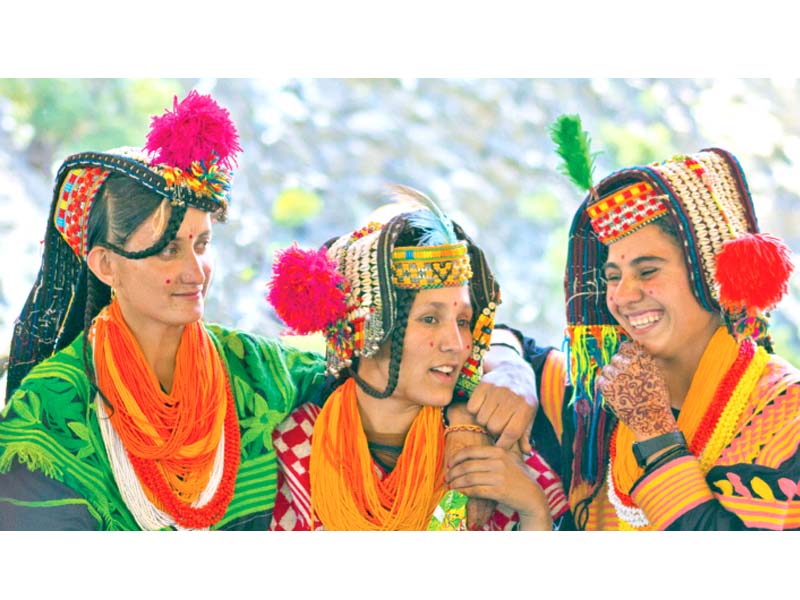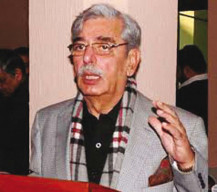
For the first time in the country’s history, a move has been sought to extend marital laws to the Kalash community, living in the vales of Chitral. The Kailash Marriage Act, which will be formulated in consultation with 74 indigenous judges, is expected to be completed by December 2020.
The implementation of the decree will offer legal representation and protection to the Kailash people in all matters pertaining to marriage, with special consideration for tribal customs.
Talking to The Express Tribune, Advisor to the Chief Minister on Religious Affairs, Kailash tribesman Wazir Zada said that the Act is welcomed move and greatly anticipated by his community. “There are laws pertaining to Hindu marriages, Christian marriages and Muslim marriages in Pakistan, so it is high time that marriages of the Kailash community are also recognised by the state,” he commented.
The 4,000 settlers, native to the country’s eastern prong of Chitral Valley, represent the last known Kailash settlement in the world. For centuries, the Kailash people have been performing marriages according to religious laws and traditions native to their culture.
In absence of any legal or documentary status awarded by the state, issues relating to marriage, divorce and inheritance would be traditionally solved through consultation with a tribal council called Jirga. However, when the Jirga would be unable to issue a ruling accepted by all parties, matters would remain unresolved and often continue to exacerbate within the community.
In view of these circumstances, a marriage Act for the Kailash community has been brought into consideration for the very first time. In this regard, a Memorandum of Understanding (MoU) has been signed between Special Assistant to the Chief Minister on Religious Affairs and Pakistan Council of World Religions Chairperson Qari Rohullah Madani. Services of native legal practitioner Advocate Nabig Kailash have been sought to help legalise the soon-to-be-drafted Kailash Marriage Act.
Advocate Nabig will further seek the assistance of local elders and religious leaders, to ensure that the legal document is formulated in accordance with Kailash values, customs and traditions.
According to Wazir Zada, once drafted, the Kailash Marriage Act will be submitted to the Provincial Assembly for approval and legislation through the Department of Minority Affairs. “This landmark decision will not only provide legal protection to the traditions and values of the Kailash community, but will also further promote love and traditional harmony among the people,” opined Wazir Zada.
Speaking to The Express Tribune, Jamina, a Kailash woman, said that the Marriage Act is a welcomed development, which will help recognise rights of the Kailash women. “Marriage, be it of choice or arranged will now have legal documentation and safeguard, which will help solve many issues which arise within the community.”
Maqsood Salafi, Project Manager of an NGO working on the Kailash Marriage Act, shared that a survey regarding the legal document has already been launched. “Advocate Nabaig will collect data from male and female judges, while recommendations will also be offered to and sought from the community. The draft will only be forwarded to the assembly once it is approved by all the involved judges,” told Salafi.
Addressing the Kailash Marriage Act, Khyber Pakhtunkhwa Law Minister Sultan Muhammad Khan said that Civil-religious laws exist everywhere in the world, including the subcontinent. “The decree will be formulated with respect to Kailash customs and traditions. Once the legal department receives the draft for the Act, we can start working on it as soon as possible in consultation with the Kailash community and present the bill before the Assembly for approval and legislation.”

1672385156-0/Andrew-Tate-(1)1672385156-0-405x300.webp)
















COMMENTS
Comments are moderated and generally will be posted if they are on-topic and not abusive.
For more information, please see our Comments FAQ